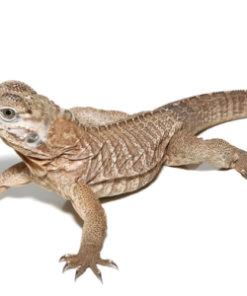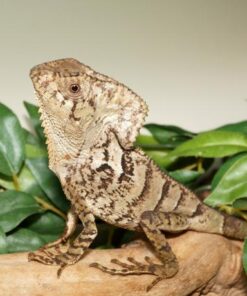Bush Babies For Sale
$1,087.00
We are USDA licensed breeders specializing in hand-reared, friendly Bush Babies for sale. Our Bush Babies are carefully raised to ensure they are well-socialized and ready to become loving companions. Each baby will be delivered with a care box to help them settle in, along with lifetime breeder support for any questions or advice. If you’re looking for a unique and adorable pet, contact us today to bring a Bush Baby into your home.
The Ultimate Guide to Bush Babies: A Unique Exotic Pet
Bush babies, also known as galagos, are small primates known for their big eyes, remarkable agility, and playful personalities. As more people become interested in unique pets, bush babies have gained popularity among exotic pet enthusiasts. If you’re considering adding a bush baby to your family, this comprehensive guide will cover everything you need to know, including their care, costs, and where to find bush babies for sale.
What Are Bush Babies?
Overview
Bush babies belong to the family Galagidae and are native to the forests and savannas of Africa. They are nocturnal creatures, primarily active at night when they forage for food. Bush babies are known for their remarkable jumping abilities, which allow them to navigate through trees with ease. With their adorable appearance and playful nature, they have captured the hearts of many exotic pet lovers.
Physical Characteristics
Bush babies are small primates, typically measuring about 6 to 16 inches in length, not including their long tails, which can be as long as their bodies. They weigh between 3 to 9 pounds, depending on the species. Bush babies have large, expressive eyes adapted for their nocturnal lifestyle, providing excellent night vision. Their fur is soft and can vary in color, typically ranging from gray to brown or reddish hues.
Lifespan
In captivity, bush babies can live up to 15 years with proper care. Owning a bush baby is a long-term commitment that requires attention, love, and dedication.
Personality and Behavior
Social Nature
Bush babies are social animals that thrive in groups. In the wild, they live in family units and engage in social behaviors such as grooming, playing, and vocalizing. While they can bond closely with their human companions, they also require social interaction to maintain their emotional well-being.
Intelligence
Bush babies are highly intelligent creatures that need mental stimulation to stay engaged. They enjoy exploring their environment and playing with toys. If they do not receive adequate stimulation, they may develop behavioral issues, such as excessive vocalization or destructive behavior.
Vocalization
Bush babies are known for their wide range of vocalizations, which can include barks, howls, and screams. While their sounds can be amusing, they can also be quite loud, especially during mating season or when they feel threatened. Be prepared for some noise if you decide to bring a bush baby into your home.
Care Requirements
Caring for a bush baby requires providing a suitable diet, a spacious environment, social interaction, and regular veterinary care. Here are the essential care requirements for your new pet.
Diet
Bush babies have a varied diet that reflects their natural feeding habits. Their diet should consist of:
1. **Fruits**: Fresh fruits such as bananas, apples, and berries should make up a significant portion of their diet. Be sure to wash the fruits thoroughly and remove any seeds that may be harmful.
2. **Vegetables**: Leafy greens and vegetables like carrots, sweet potatoes, and peas are also important for their health.
3. **Insects**: Insects like mealworms and crickets can provide essential protein. Offering these treats in moderation can contribute to their nutritional needs.
4. **Commercial Diets**: Specialized diets formulated for primates or high-quality monkey pellets can provide a balanced nutritional foundation.
5. **Fresh Water**: Always provide fresh, clean water for your bush baby to drink. Change the water daily and clean the bowl regularly.
Housing
Creating a safe and stimulating environment for your bush baby is crucial. Here are some housing considerations:
1. **Cage Size**: Bush babies require a spacious cage with plenty of room for climbing and exploring. A minimum cage size of 4 feet high by 3 feet wide is recommended, but larger is always better.
2. **Vertical Space**: As natural climbers, bush babies thrive in environments with vertical space. Include branches, perches, and shelves for climbing and exploring.
3. **Toys and Enrichment**: Provide a variety of toys to keep your bush baby mentally stimulated. Rotate toys regularly to prevent boredom. Consider items that encourage foraging, as this mimics their natural behavior.
4. **Safe Environment**: Ensure the cage is placed in a well-lit area away from direct sunlight and drafts. The environment should be free from hazards such as toxic plants, chemicals, and small objects that could be swallowed.
Socialization
Socialization is essential for bush babies, as they are naturally social animals. Here are some tips for effective socialization:
1. **Daily Interaction**: Spend time with your bush baby each day, engaging in play and conversation. This interaction helps build trust and strengthens your bond.
2. **Gentle Handling**: Introduce handling slowly and gently. Allow your bush baby to come to you on its own terms. Over time, they will become more comfortable with being held and cuddled.
3. **Positive Reinforcement**: Use positive reinforcement techniques to encourage good behavior. Treats, praise, and gentle affection can reinforce desired behaviors and strengthen your relationship.
Health Care
Regular veterinary care is essential for maintaining your bush baby’s health. Here are some health considerations:
1. **Veterinary Check-Ups**: Schedule routine check-ups with a veterinarian experienced in treating exotic pets. They can provide vaccinations, check for parasites, and monitor your bush baby’s overall health.
2. **Behavioral Issues**: Be prepared to address behavioral issues that may arise, such as excessive vocalization or destructive behavior. Regular training and socialization can help mitigate these issues.
3. **Dietary Needs**: Monitor your bush baby’s diet to prevent obesity and nutritional deficiencies. Consult with a veterinarian for specific dietary recommendations.
Common Health Issues
Like all pets, bush babies can experience health issues. Regular veterinary care and monitoring are essential for maintaining their health. Here are some common health concerns to be aware of:
Obesity
Obesity can be a concern in pet bush babies, particularly if they are overfed or not given enough opportunities for exercise. Monitor their weight and consult a veterinarian if you notice any changes.
Dental Problems
Dental issues can arise in bush babies, especially if they do not have appropriate items to chew on. Providing safe chew toys can help maintain dental health.
Respiratory Issues
Bush babies are sensitive to airborne pollutants, such as smoke, fumes, and dust. Ensure your home is well-ventilated and free from harmful substances.
Regular Check-Ups
Schedule regular veterinary check-ups to monitor your bush baby’s health. A veterinarian experienced in exotic pet care can provide vaccinations, check for parasites, and address any concerns you may have.
Finding Bush Babies for Sale
If you’re ready to add a bush baby to your family, it’s essential to find a reputable source. Here are some options for finding bush babies for sale:
Reputable Breeders
Searching for bush babies for sale near me often leads to local breeders who specialize in galagos. Look for breeders who prioritize the health and well-being of their animals. Reputable breeders should provide:
- Health guarantees
- Information about the baby bush baby’s lineage
- Proper documentation
Pet Stores
Some exotic pet stores may carry bush babies. However, it’s essential to research the store’s reputation and ensure that they prioritize the health and care of their animals. Ask about the bush baby’s history and any available health documentation.
Animal Shelters and Rescues
Consider adopting a bush baby from an animal shelter or rescue organization. Many exotic pets in shelters are in need of loving homes, and adopting one can be a rewarding experience. Look for local rescues or organizations that specialize in exotic pets.
Online Resources
Websites dedicated to exotic pet adoption and sale may also have listings for bush babies. Be cautious when purchasing online, and always verify the seller’s reputation before making a commitment.
Bush Baby Price
When considering how much do bush babies cost, be prepared for a range of prices depending on various factors. Here’s what to expect:
Purchase Price
The price of a bush baby can vary significantly based on factors such as:
- **Breeder Reputation**: Established breeders who prioritize health and proper socialization may charge higher prices than less reputable sources. Prices for bush babies typically range from $3,000 to $5,000, depending on the breeder and location.
- **Location**: The price may vary based on geographic location and availability. Urban areas may have higher prices due to demand.
- **Age**: Newborn bush babies tend to be more expensive than older ones, as they require more care and socialization.
Additional Costs
Aside from the initial purchase price, consider the ongoing costs associated with pet ownership:
1. **Cage and Equipment**: A suitable cage can range from $200 to $800, depending on size and features.
2. **Diet**: Monthly expenses for food can vary but expect to spend around $50 to $100 on fresh fruits, vegetables, and commercial diets.
3. **Toys and Enrichment**: Budget for toys and enrichment items, which can cost $20 to $50 per month.
4. **Veterinary Care**: Annual check-ups can range from $50 to $200, depending on the services required.
Legal Considerations
Before acquiring a bush baby, it’s vital to understand the legal implications of ownership. The legality of keeping bush babies as pets varies by state and locality. Here are some steps to follow:
1. **Research Local Laws**: Check your state and local laws regarding the ownership of exotic animals. Some places may require permits or licenses to keep a bush baby.
2. **Obtain Necessary Permits**: If your area allows monkey ownership, ensure you apply for and obtain any required permits or licenses.
3. **Consult Wildlife Authorities**: Reach out to local wildlife agencies to understand the regulations and responsibilities involved in keeping a bush baby as a pet.
Conclusion
Bush babies are enchanting and playful creatures that can make wonderful pets for those willing to provide the time, care, and commitment they require. If you’re considering adding a bush baby to your family, it’s crucial to educate yourself about their needs, costs, and legal requirements.
From finding a reputable breeder to ensuring you have the right environment and diet, careful planning will lead to a fulfilling experience with your new pet. With proper care and socialization, your bush baby can become a cherished member of your family, bringing joy and companionship for years to come. Whether you’re searching for a **bush baby pet for sale** or looking for **how much bush babies cost**, be sure to choose a source that prioritizes the health and well-being of their animals. Embrace the journey of welcoming a bush baby into your life, and enjoy the many rewards of exotic pet ownership!
Be the first to review “Bush Babies For Sale” Cancel reply
Related products
EXOTIC VARIETIES FOR SALE
EXOTIC VARIETIES FOR SALE
EXOTIC VARIETIES FOR SALE
EXOTIC VARIETIES FOR SALE
EXOTIC VARIETIES FOR SALE
EXOTIC VARIETIES FOR SALE



Reviews
There are no reviews yet.